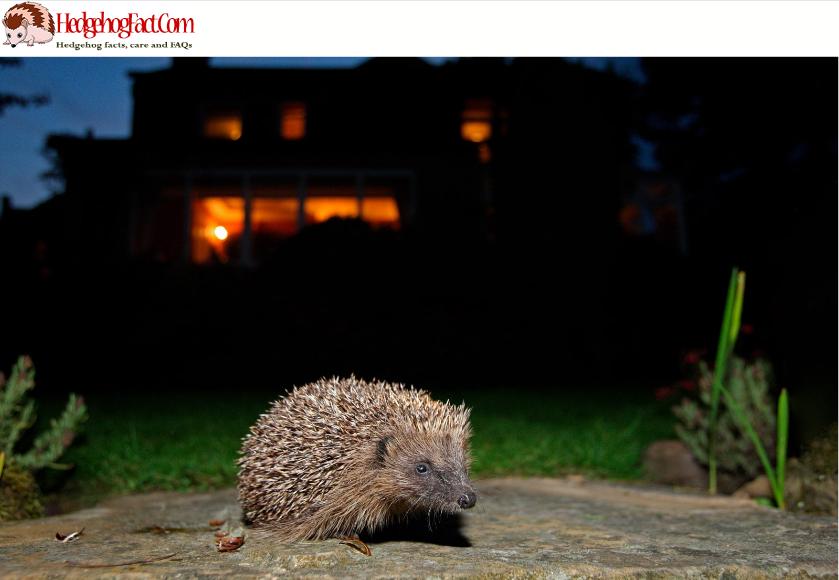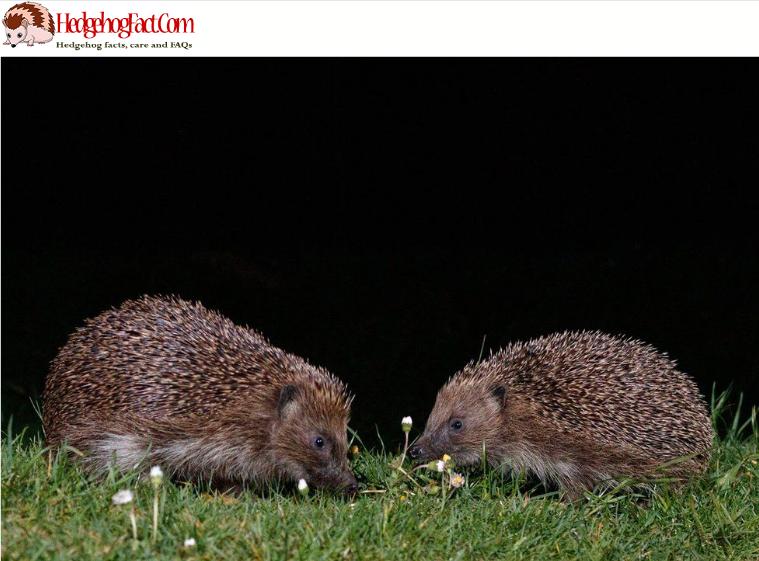If you’re considering getting a hedgehog as a pet or are just curious about these adorable animals, one of the questions you may have is whether hedgehogs are nocturnal. The answer is yes, they are primarily nocturnal creatures. In Are Hedgehogs Nocturnal? A Comprehensive Guide, we’ll explore hedgehogs’ nighttime nature and what it means for their behavior and care. Let’s find out with hedgehogfact!
Are hedgehogs nocturnal?
Hedgehogs are a type of spiny mammal that can be found in various parts of the world. They are known for their distinctive appearance and late-night behavior. According to several sources, including the Hedgehog Registry, Wikipedia, and Beyond the Treat, hedgehogs primarily live at night that are adapted for hunting and navigating in the dark.
What Does Nocturnal Mean for Hedgehogs?
Nocturnal means that hedgehogs are primarily active during the night and sleep during the day. Diurnal animals, on the other hand, are up during the day and asleep at night. Being nighttime is a natural adaptation for them that helps them avoid predators and hunt for food during periods when there is less competition from other animals.
In the wildlife, hedgehogs will typically emerge from their nests at dusk and spend the night foraging for insects, worms, and other small prey. They have a keen sense of smell and can locate their food using their nose.

As pets, hedgehogs will often adjust their activity patterns to match their owner’s schedule, but they will still need plenty of opportunities to exercise and explore their environment during the night. It’s important to provide them with a safe and stimulating environment that includes plenty of hiding places, tunnels, and toys.
Overall, being nocturnal is a natural behavior for hedgehogs that helps them survive in their natural environment, and pet owners need to understand and accommodate this behavior to provide the best care for their hedgehogs.
Hedgehogs: A Brief Overview
They belong to the subfamily Erinaceinae, in the eulipotyphlan family Erinaceidae. These spiny mammals have ancestry that goes back millions of years and are known for their round, spiky appearance. There are 17 species of hedgehogs, found across Europe, Asia, and Africa. They can range in size from 4 to 12 inches and can weigh anywhere from 6 ounces to 3 pounds.
Hedgehog Activity Patterns
Hedgehogs are known to have highly developed senses of hearing, smell, and specially-adapted eyesight, which are used to hunt prey in the dark. They are evening creatures since they spend the majority of the day sleeping and acting during the day.
When they wake up at night, hedgehogs search for food, water, and mates. They can cover a lot of ground during these late-night journeys, and in the wildlife, they start their day at dusk. They are also known to be crepuscular, which means they are mostly awake during early mornings and late evenings.
Hedgehog activity is still largely nocturnal, thus this does not imply that they are nocturnal animals. They are primarily nocturnal animals, which means that they are most active during the night and sleep during the day. In the wild, they will spend most of their waking hours foraging for food and eat, exploring their surroundings, and engaging in social interactions with other hedgehogs.

As pets, hedgehogs will often adjust their activity patterns to match their owner’s schedule, but they will still need plenty of opportunities to exercise and explore their environment during the night. It’s important to provide them with a safe and stimulating environment that includes plenty of hiding places, tunnels, and toys.
Hedgehogs are also renowned for their propensity to become less energetic during cold weather or under stressful conditions. During these times, they may enter a state of torpor, which is a temporary decrease in metabolic rate and activity level.
They are generally rather busy creatures that need a lot of mental and physical stimulation to remain healthy and content. If you notice that your hedgehog is sleeping more than usual or seems lethargic, it’s important to monitor their behavior and consult with a veterinarian if you are concerned.
Hedgehog Sleep Patterns
Hedgehogs are known for their love of sleep, and they typically sleep for a large portion of the day. In the wild, they sleep under bushes, grasses, rocks, or most commonly in dens dug into the ground.
They are nighttime creatures, which means that they are primarily active during the night and sleep during the day. In the life, hedgehogs are known to sleep for up to 18 hours a day, but they will wake up periodically throughout the night to forage for food and explore their surroundings.

When kept as pets, they will often adjust their sleep patterns to match their owner’s schedules. However, they will still need plenty of uninterrupted sleep during the day, so it’s important to provide them with a quiet, dark, and comfortable sleeping environment.
Hedgehogs are known to enter a state of torpor during periods of cold weather or when they are experiencing stress. They slow down in activity and may sleep for prolonged periods of time during torpor, which also causes a drop in metabolic rate. If you notice that your hedgehog is sleeping more than usual or seems lethargic, it’s important to monitor their behavior and consult with a veterinarian if you are concerned.
Conclusion
So, Are Hedgehogs Nocturnal? They are primarily nocturnal animals, meaning they are active during the night and sleep during the day. As a result, they have highly developed senses of hearing, and smell, and adapted eyesight. If you’re planning to keep a hedgehog as a pet, it’s important to understand their behavior and care for them accordingly, providing them with a suitable environment and a varied diet.





